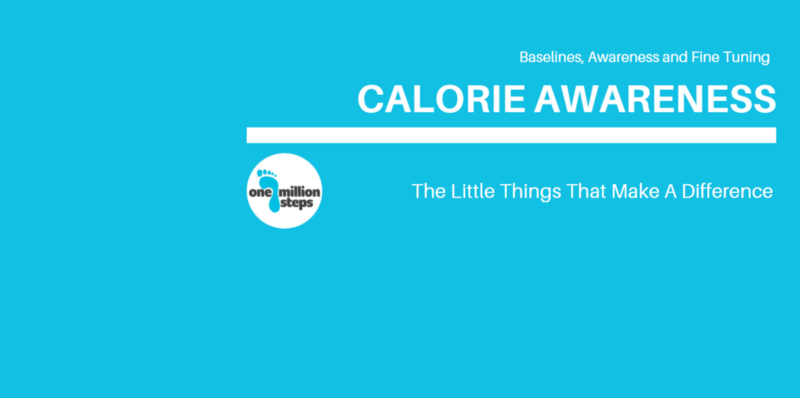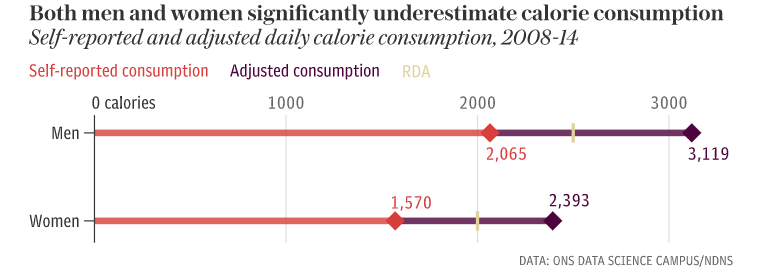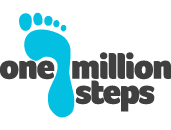
The surprising wake up call Part 2
This is a baseline and awareness exercise
Once again, and hopefully for the last time, we’re not into controversies. But as a baseline and awareness exercise, calorie awareness can prove to be interesting.
Once again, we’re not suggesting anyone deny themselves a favourite food or treat. Purely because we truly believe in this statement:
“Physical activity; even if you don’t lose an ounce, you’ll live longer, feel healthier, be less likely to get cancer, heart disease, stroke, and arthritis. It’s the closest thing we have to a wonder drug” Centre for Disease Control and Prevention
Participants choose to do The Million Steps Challenge to:
- Fundraise for a good cause
- Get more fit
- Improve their mental health
- Lose a little weight, tone-up or
- a little bit of everything above
So let’s quickly look at why we bring this up during the challenge as a baseline awareness exercise.
Firstly, we are not asking you to calorie count. We are talking about Calorie Awareness. Because it seems a huge number of us in the UK:
- Don’t know what we consume
- Have forgotten what the calories are for a food item or
- Are in denial about our weight
So we see this as a short awareness exercise that brings your focus back to your everyday baselines.
If you don’t know where you are, it’s hard to know where you got to get to (or in this instance, if you even have to start going at all! You may be perfect where you are)
Over the last few years, from experience, from speaking to friends and colleagues and looking at some of the stats a few interesting things slowly came to light.
We are not going into details, we are just leaving these as general themes. They may or may not apply to you. We are just saying be aware of them.
Denial of Weight
This has been a topic that I was actually surprised about. I mean, … I never thought it was a “thing”.
UNTIL I REALISED I WAS GUILTY OF IT TOO!
Yup. On my very first Million Steps Challenge trial, I completed mine in 70 days and lost 20 lbs! My walking partner finished his in 68 days and lost 24 lbs!
Now here’s the thing. We did not think we were overweight, well maybe a little bulge here and there. But certainly NOT 24lbs or 20 lbs! I mean, that is major stuff.
And herein lies a clear issue. If we are in denial. We cannot move forward. Or as we mentioned above “If you don’t know where you are, it’s hard to know where you got to get to.”
And health professionals understand this too. The following reports were done in 2012 but really would benefit from a read even if only the summary and key findings.
“We need to establish better ways for health professionals to address this sensitive subject and communicate with people whose health would benefit from positive lifestyle changes.”
Critical Reading
Britons In Denial about Personal Weight (summary of the above)
Denial of Levels of Consumption
So how much do we really eat?
For me, the question finally, firmly, arose when I had a Wetherspoon’s Empire State Burger some years ago.
2,222 calories. And that’s before the cola, I had which took it close to 2400. OUCH!
From that day on, I just became more aware. I may not be perfect. But I don’t lie to myself. Not anymore.
A third of people in the UK underestimate how many calories they are eating, according to an analysis of Office of National Statistics data.
It suggests British men eat more than 3,000 a day while claiming to eat 2,000. And women say they eat about 1,500 while consuming nearly 2,500. Source

Accepting that we may all be guilty of this and being aware can be a revelation. And let’s be honest, with all the hard work that we put in on The Million Steps Challenge, wouldn’t it be amazing to get the most out of the challenge by doing a bit of fine-tuning?
Even if it’s only just for 100 days. It’s a great way to start an awareness habit even for the future.
We have forgotten what the calories are for a food item
Actually, that may be putting it mildly. I think for many of us, including myself, we don’t actually know at all.
So this is where Calorie Awareness comes in. I want to stress again:
It’s NOT calorie counting. That’s not the purpose here.
I’ll admit that making a note of what you eat is a chore.
And you will need a nutrition tracker. There are many out there. I used MyFitnessPal https://www.myfitnesspal.com/
I use it as a wake-up call and I suggest that you try it too.
For two weeks. Don’t change anything. Carry on as normal (though you’ll be pleasantly surprised you can’t help but make little changes once the truth is staring you in the face.)
Use it to see what you are actually consuming. The effects of this can be quite interesting.
I’ll be honest and say I have never managed more than 30 days on MyFitnessPal whilst on a Million Steps Challenge
But the increase in my level of awareness and understanding was so profound, it has stayed with me for quite a while.
We will talk about Keystone habits soon But for now, have a read of what Charles Duhigg (Author of the Power of Habit) says in this article by Catherine Wilson for Duke University.
Once people invest time and energy in exercise, it appears that they are set up to make other beneficial changes, even without consciously doing it.
Food journaling seems a little more clear cut: if someone is focusing on weight loss, keeping track of what they eat increases the intrinsic reward of good behavior by creating an extrinsic reward, which is seeing the food consumption documented. But researchers of a large weight-loss study were surprised to see just how effective it was, and how it influenced other behaviors:
“It was hard at first [writing down everything one day per week]. The subjects forgot to carry their food journals, or would snack and not note it…Eventually, it became a habit. Then something unexpected happened. The participant started looking at their entries and finding patterns they didn’t know existed. Some noticed they always seemed to snack at about 10 a.m., so they began keeping an apple or banana on their desks for mid-morning munchies. Others started using their journals to plan future menus, and when dinner rolled around, they ate the healthy meal they had written down, rather than junk food from the fridge.” (p. 120 — The Power of Habit Charles Duhigg)
The chore of recording food was difficult at first — as all new habits are. But researchers found that six months into the study, people who kept food records daily lost twice as much weight as everyone else! And because of their heightened awareness, they were primed to make additional positive changes to their behavior. Source
Did you notice the most critical thing? Awareness.
“Then something unexpected happened. The participant started looking at their entries and finding patterns they didn’t know existed. Some noticed they always seemed to snack at about 10 a.m., so they began keeping an apple or banana on their desks for mid-morning munchies.”
One last point to make before we leave you.
You cannot out-walk what you put in your mouth.
And some interesting mathematical facts.
- The NHS recommends 1600 calories a day. 400 for breakfast and 600 each for Lunch and Dinner. No, they did not change the goalposts. Here is the explanation Behind the headlines: calorie guidelines remain unchanged
- Brian Wansink and his team at Cornell University’s Food and Brand Laboratory in New York have estimated what they call the Mindless Margin. The human brain cannot tell if you eat 100–200 calories less or more than the suggested level of 2000. Critical Reading: What is the Mindless Margin?
- A pound is roughly equivalent to 3500 calories. To lose it in a week would be to reduce 500 calories on average per day for seven days.
- Eating three Jelly Belly jelly beans a day (12 calories) would lead to 4380 over the year. Similarly drinking one less can of Coca-Cola (139 calories) each day would amount to 101,470 calories: 29 lbs. over a 2 year period. Source
- Walking 10,000 steps a day for an average person of average height and weight can burn off about 400 calories (and depending on how many active/brisk walking minutes you take. The more the better)
Your Action:
“For the next two weeks, I won’t change anything and carry on as normal. I want to be aware of what I eat and find my baseline”.
Remember, this is not about calorie counting or cutting back. This is about awareness. That is all.
Record. Accept. Be Aware. Learn
Happy Stepping!
To find out more about the Million Steps Challenge and how we can help you, your business or charity, please visit https://millionsteps.com
Or Register your organisation interest: Million Steps CoVid-19 Package here
